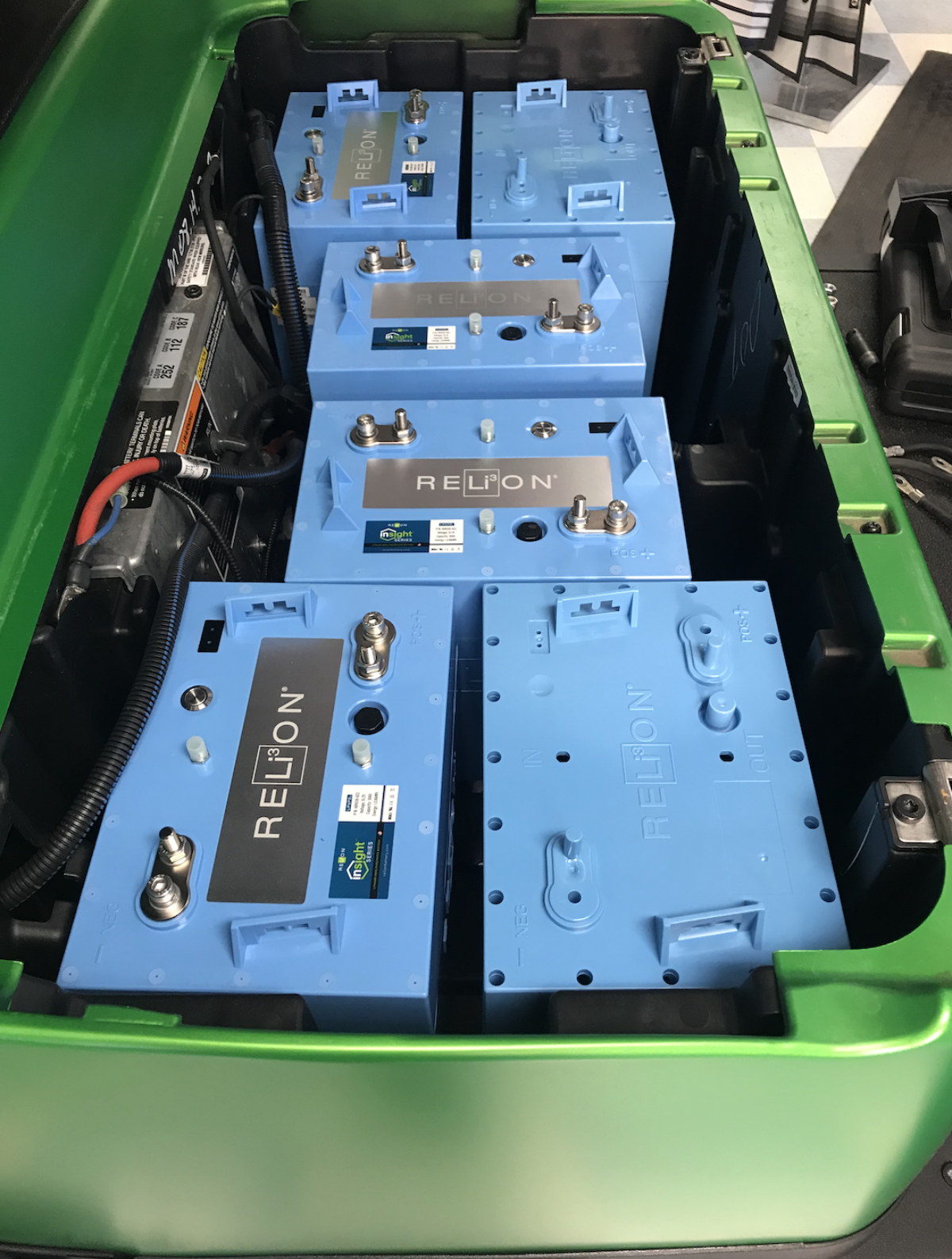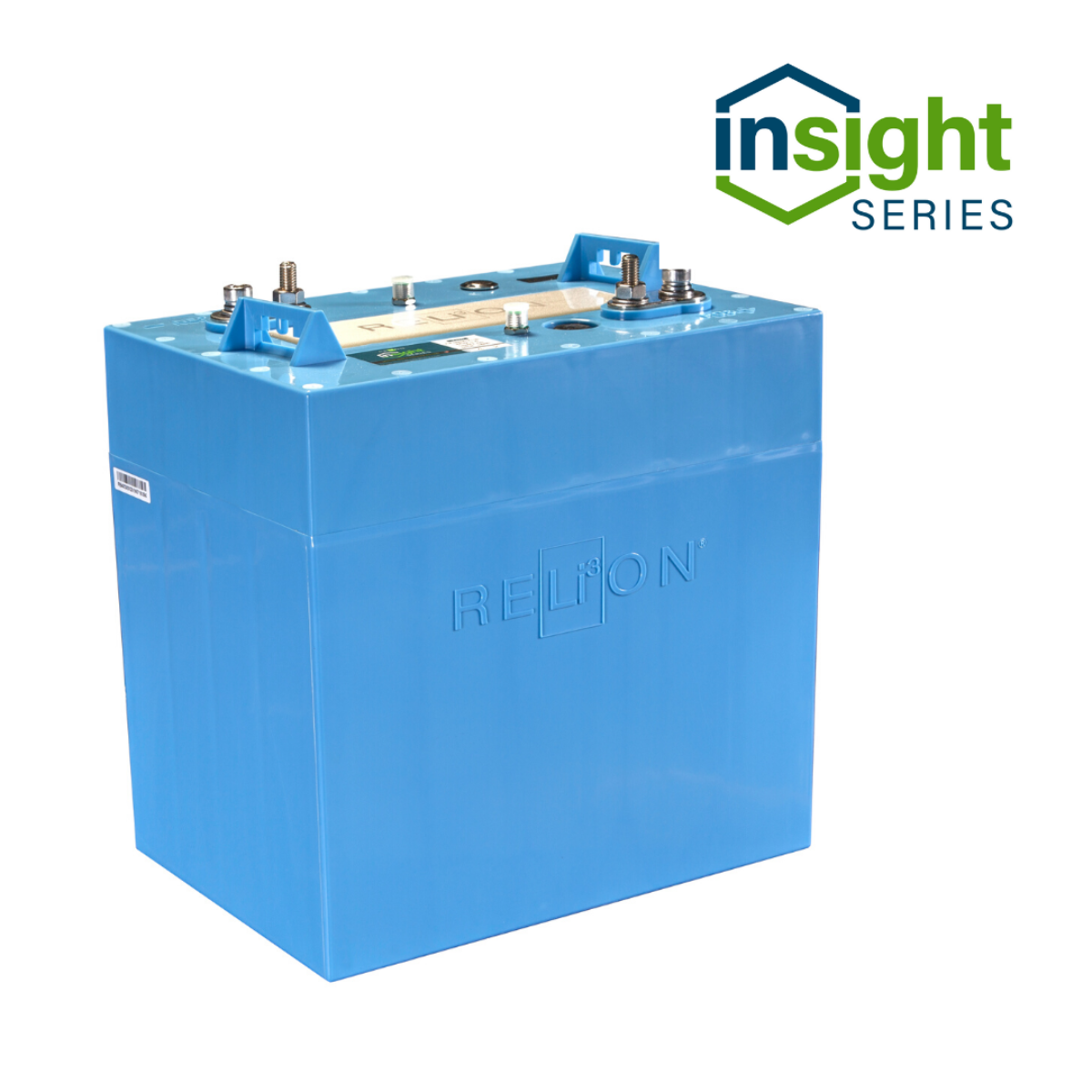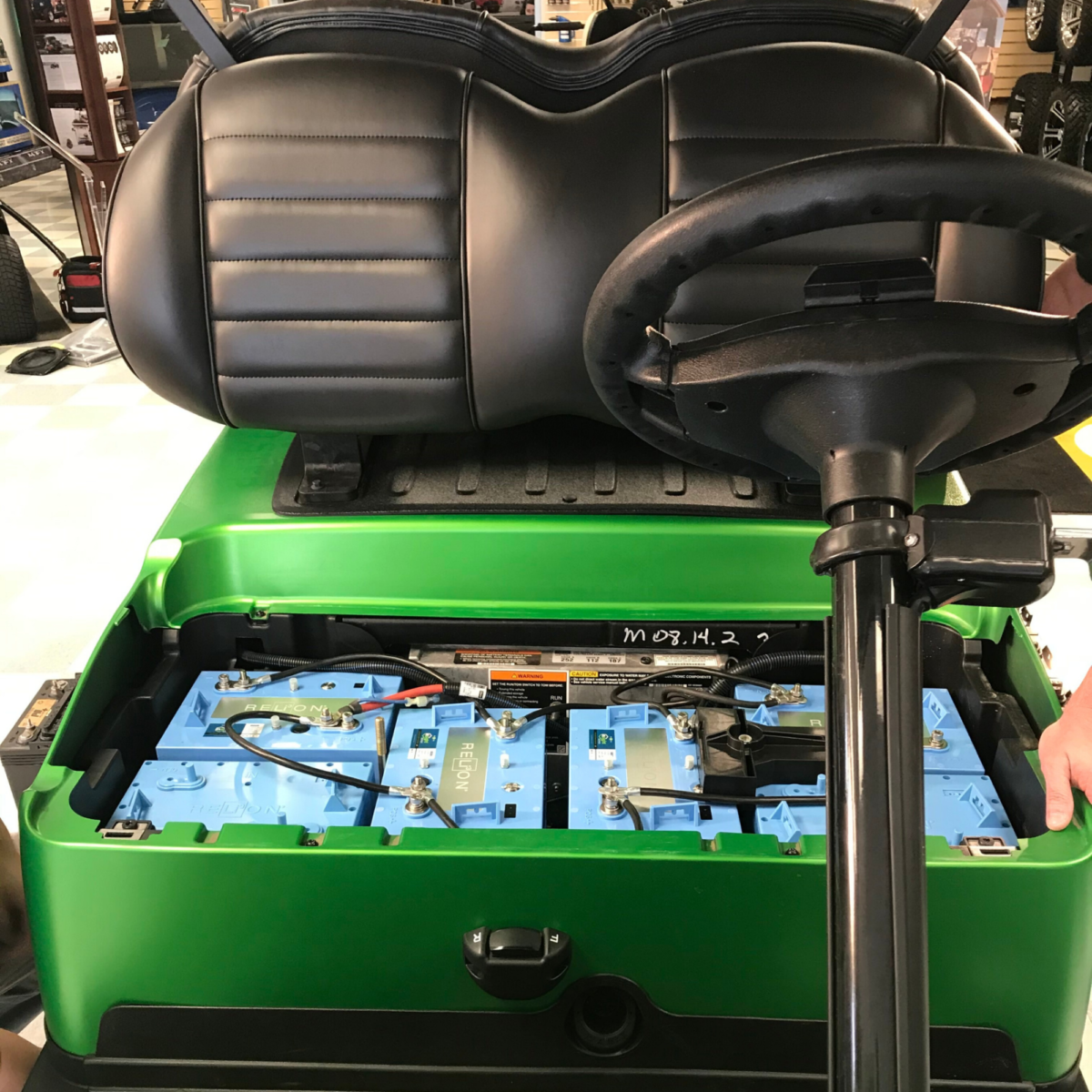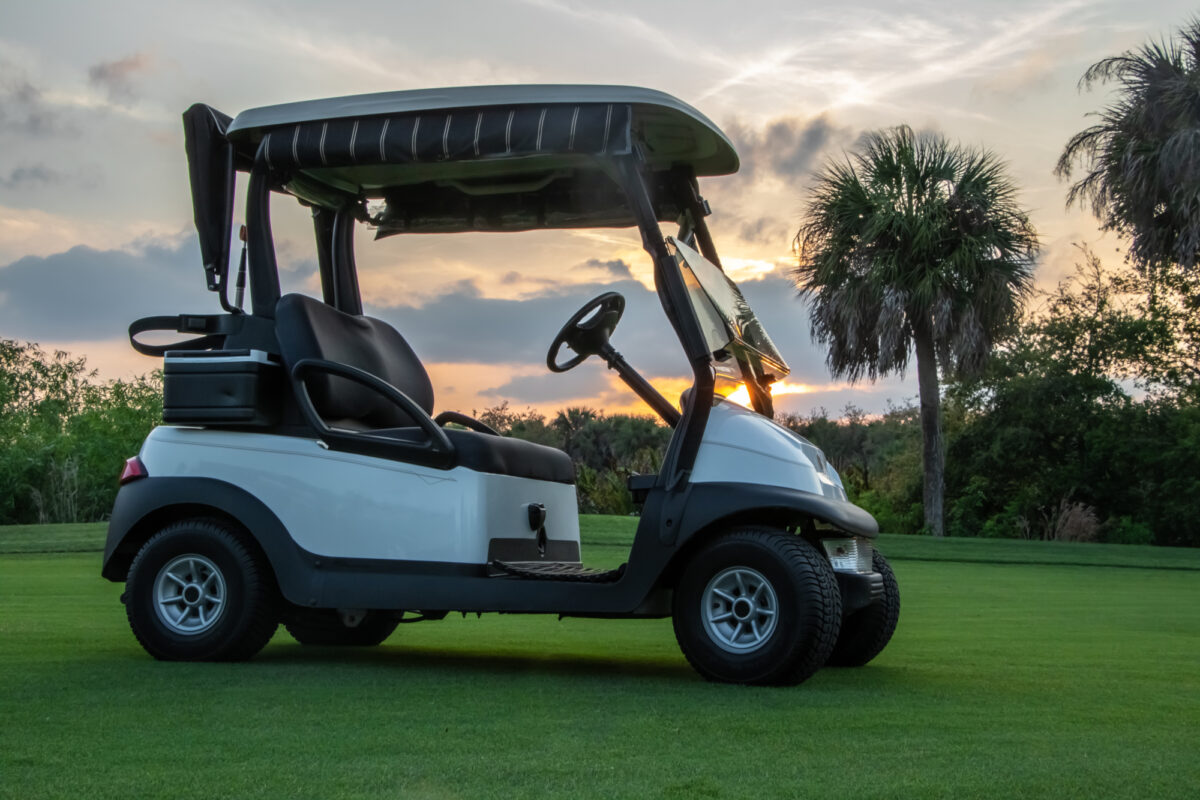Are you thinking of switching from lead-acid to lithium for your golf cart? You may be curious how these batteries compare and why one would be better than the other. In this week's blog, we dive into battery history and explain how lithium batteries far exceed lead-acid, especially when used in golf carts or personal transportation vehicles.
Golf Cart History
In the 1930s and 1940s, several electric golf carts emerged, however, they were mostly modified rickshaws that were never widely adopted. It wasn’t until 1951 that an electric golf car specifically designed for golf hit the market.
In the 1970s, the golf cart market expanded as people realized golf carts could also be used as a means of transportation in small, private communities.
Lead-acid batteries have had a long run as the first and only solution to power these electric golf carts, and they’ve done a decent job in providing the basic needs of the market. They’ve made golf cars clean and quiet compared to gas-powered vehicles, and they’ve had a relatively inexpensive upfront cost.
Advancements in Lead-Acid Battery Technology
The lead-acid batteries used in golf carts have become standardized in terms of form, fit and function and there are a few options in terms of capacity which directly relates to mileage range. There are even watering systems integrated in the battery caps that reduce the labor associated with adding water to your traditional lead-acid batteries. There are sealed lead-acid batteries, such as Gel and AGM, available for golf cars, that eliminate the need to add water, but they have not been widely accepted due to some of their performance limitations.
Not to diminish the mighty lead-acid battery and all it has provided, but the reality is, the advancements have been somewhat underwhelming over the years.
Out with the Old in with the New - Enter Lithium Batteries
One fact that is undeniable is that when a particular technology doesn’t advance a new technology will displace it – think BlockBuster and Netflix. Demands increase, expectations evolve, and as other technologies reveal hip, new features, a customer wants the same advancements in their golf cart or personal transportation vehicle (PTV). This is where lithium batteries enter the scene.

Lithium batteries have answered the call to improve the performance and overall customer experience of driving a golf cart. They are lightweight, making them significantly easier to install - anyone can do it - and there is less wear-and-tear on the golf cart and fairways. They are maintenance-free - no water, no cleaning acid residue - just charge them and they are ready to go. They are capable of fast charging. They provide higher, sustained power so they are never sluggish. They’re difficult to damage, unlike lead-acid batteries that often see premature failure due to improper charging, watering, etc. - check out Tech Tuesday for more details on that. They also provide 5-10 times longer life than lead-acid batteries, which means you aren’t replacing batteries every few years. The lifetime cost is less than lead-acid and we’ve done the math to prove it!
Advancements in Lithium Iron Phosphate Battery Technology with RELiON InSight
Though Lithium batteries solved many shortcomings of lead-acid battery technology, it also created new challenges. Lithium batteries have created safety concerns due to high heat generation, they include a Battery Management System (BMS) to protect the battery but it can also cause undesirable power losses and they can be complicated to use. At RELiON, we decided to design a product from the ground up and eliminate all of the obstacles. The result is RELiON’s InSight 48V lithium golf cart battery!

First off, all RELiON Lithium batteries are Lithium Iron Phosphate (LiFePO4) chemistry, which is inherently safe. It produces a fraction of the heat generated from other popular lithium chemistries. Also, RELiON’s InSight product, has an external heatsink in the cover so that heat is not trapped inside the battery case. This means our product is safe and our electrical components are spared the excessive heat that commonly reduces the life of electronics.
InSight does not use an off-the-shelf BMS, so the protection parameters have been intentionally selected to protect the battery without compromising the customer experience. In other words, the vehicle will not experience unexpected power losses and come to a sudden stop as they do with other lithium batteries.
It's also super easy to install and use. The InSight 48V battery is the same size as the lead-acid battery it’s replacing, so it fits right in the same battery tray and they come with the same lifting bracket to do so. Just install and go! We couldn’t have made it any easier.
Customer Experience with RELiON Lithium Batteries
The first thing people notice when they drive a golf cart with lithium batteries is the feel. The car feels lighter, faster and smoother. We all know golf carts are speed-limited, so why do they feel faster? It’s because the higher voltage of a lithium battery provides more power, which increases the vehicle’s ability to accelerate. The vehicle can reach top speed faster and more often. When driving up a hill with lead-acid batteries, you just can’t reach full speed but with lithium batteries you can and do!

What’s equally important is what you don’t experience. This includes unexpected stops, acidic messes on the top of the batteries, in the battery compartment and on the floor, stress or worry about whether or not you left your battery uncharged or did a number of other things that can destroy a lead-acid battery, because none of these will damage your lithium battery. With Lithium Iron Phosphate, the biggest benefit is peace of mind.
Interested in upgrading your golf cart, PTV, UTV or LSV to lithium? Check out our InSight Series and buy online today. If you have any questions, please feel free to contact us.
About the Author:

Christine Feodorov is the VP of Product Management & Strategy at RELiON Battery. With over 23 years of experience with deep-cycle batteries, including flooded lead-acid and AGM, as well as lithium, Christine is an engineer with experience in battery testing, product development and management, and technical support. Keep up with Christine on LinkedIn here.

Price to convert my 2009 club car carryall 48 volt
Hi Lee! Please contact our Customer Sales & Support Director, Brad, at bgreen@relionbattery.com to provide more information about your set-up. He can help determine your needs + price. Thanks!
I just installed 3 insight batteries in my golf cart! Love them, just wondering if I use the cart for a short distance if I should plug them right away, or wait to get more miles on them then plug them in. Your recommendation.
Thanks John Hammel
Pisces2210@yahoo.com
John,
It is really a personal decision. You can do either, whatever works for you in the moment. These batteries have (PSOC), partial state of charge forgiveness. What that means is that they can be charged or not charged all throughout various (SOC’s) – state of charges without problems.
This is unlike lead-acid that wants to be discharged to 50%, then charged to full, etc.
Thanks!
What is the cost for 48v golf cart?
I have a 36 volt TXT cart. Just sent back 3 Dakota Lithium 12V 100 AH Batteries.. They couldn't handle the amps needed on takeoff and hills. 100% of the time, the BMS kicked in and the cart shut down. Do these batteries handle the needed power on start up and hills with a 350 amp controller? Cost for a 36 volt conversion?
Hi Michael! Our VP of E-commerce & Customer Experience would be glad to help you. Please reach out to him at bgreen@relionbattery.com to discuss further. Thanks!
Where are these batteries made?